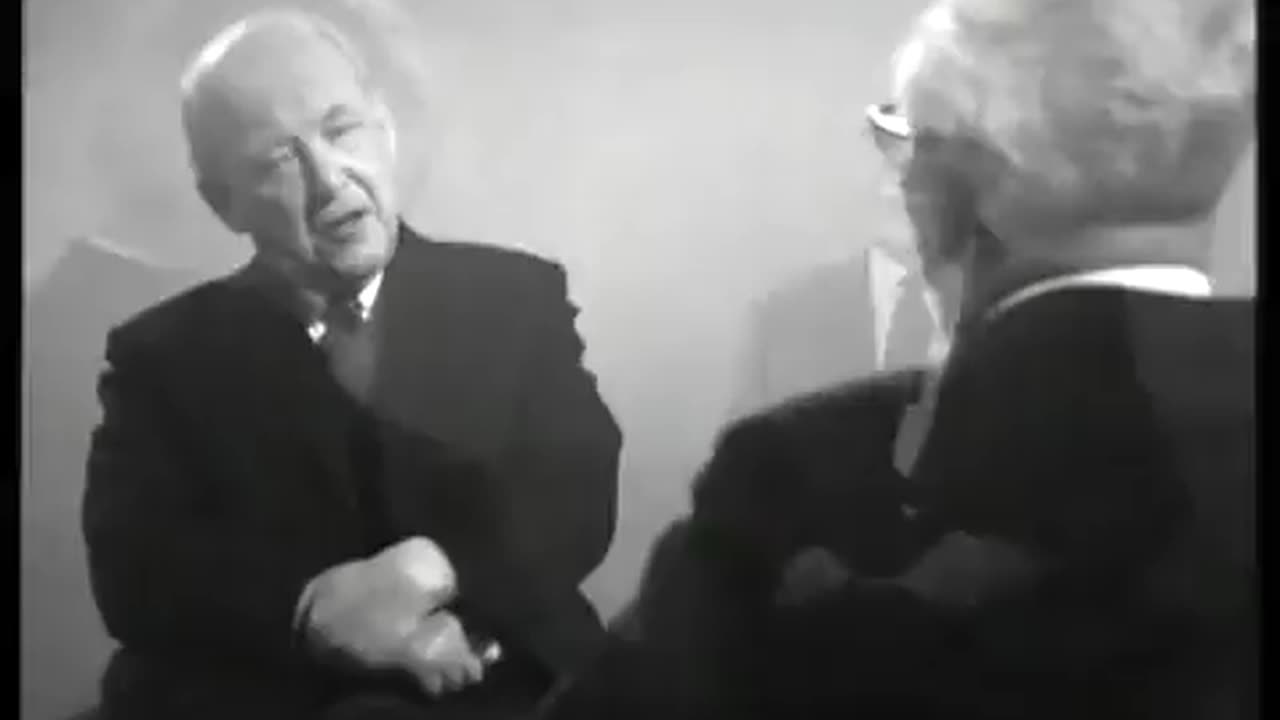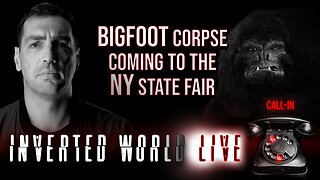Premium Only Content

What Do You Think The Church Needs Above All Else? - Dr. Martyn Lloyd Jones Interview
What Do You Think The Church Needs Above All Else? - Dr. Martyn Lloyd Jones Interview
David Martyn Lloyd-Jones (20 December 1899 – 1 March 1981) was a Welsh Protestant minister and medical doctor who was influential in the Calvinist wing of the British evangelical movement in the 20th century. For almost 30 years, he was the minister of Westminster Chapel in London.
Biography
Early life and ministry
Lloyd-Jones was born in Cardiff on 20 December 1899 and raised in Llangeitho, Cardiganshire. His father was a grocer, and he had two brothers: Harold died during the 1918 flu pandemic, while Vincent went on to become a High Court judge.[1] Llangeitho is associated with the Welsh Methodist revival, as it was the location of Daniel Rowland's ministry. Attending a London grammar school between 1914 and 1917 and then St Bartholomew's Hospital as a medical student, in 1921 he started work as assistant to the Royal Physician, Sir Thomas Horder. Lloyd-Jones obtained a medical degree from the University of London, and became a Member of the Royal College of Physicians.[2] After struggling for two years over what he sensed was a calling to preach, in 1927 Lloyd-Jones returned to Wales, having married Bethan Phillips (with whom he later had two children, Elizabeth and Ann), accepting an invitation to minister at a church in Aberavon (Port Talbot).
Westminster Chapel
Westminster Chapel as of 2009
After a decade ministering in Aberavon, in 1939 he went back to London, where he had been appointed as associate pastor of Westminster Chapel, working alongside G. Campbell Morgan. The day before he was officially to be accepted into his new position, World War II broke out in Europe. During the same year, he became the president of the Inter-Varsity Fellowship of Students, known today as the Universities and Colleges Christian Fellowship. During the war he and his family moved to Haslemere, Surrey. In 1943 Morgan retired, leaving Lloyd-Jones as the sole Pastor of Westminster Chapel.
Lloyd-Jones was strongly opposed to liberal Christianity, which had become a part of many Christian denominations; he regarded it as aberrant. He disagreed with the broad church approach and encouraged evangelical Christians (particularly Anglicans) to leave their existing denominations. He believed that true Christian fellowship was possible only among those who shared common convictions regarding the nature of the faith.
Lloyd-Jones was well known for his style of expository preaching, and the Sunday morning and evening meetings at which he officiated drew crowds of several thousand, as did the Friday evening Bible studies, which were, in effect, sermons in the same style. He would take many months, even years, to expound a chapter of the Bible verse by verse. His sermons would often be around fifty minutes to an hour in length, attracting many students from universities and colleges in London. His sermons were also transcribed and printed (virtually verbatim) in the weekly Westminster Record.
-
 2:03:42
2:03:42
Inverted World Live
9 hours agoBigfoot Corpse Coming to the NY State Fair | Ep. 94
94.8K21 -
 6:16:23
6:16:23
SpartakusLIVE
10 hours ago$1,000 Pistol Challenge || #1 ENTERTAINER of The EONS Eradicates BOREDOM
71.3K2 -
 2:33:37
2:33:37
TimcastIRL
7 hours agoTrump Orders Review of Smithsonian For Being Woke & Out of Control | Timcast IRL
170K54 -
 3:09:10
3:09:10
Barry Cunningham
10 hours agoPRESIDENT TRUMP HAS TAKEN THE MONSTER AWAY FROM THE LEFT! HORROR STORIES WON'T WORK ANYMORE!
74.6K77 -
 1:29:55
1:29:55
WickedVirtue
5 hours agoLate Night Fortnite w/ Friends
43.3K -
 3:34:06
3:34:06
This is the Ray Gaming
5 hours ago $0.55 earnedCould you be? Would you be? Won't you be my RAYBOR? | Rumble Premium Creator
25.7K -
 1:46:52
1:46:52
JahBlessGames
6 hours ago🎉Come een' and come tru' - VIBES | MUSIC | GAMES
46K2 -
 38:47
38:47
MattMorseTV
8 hours ago $13.55 earned🔴Tulsi just CLEANED HOUSE.🔴
63.7K103 -
 6:24:06
6:24:06
Reolock
9 hours agoWoW Classic Hardcore | WE'RE BACK!!
28.1K1 -
 3:46:13
3:46:13
SynthTrax & DJ Cheezus Livestreams
11 hours agoShell Shock Live - The Scorched Earth Remake/Upgrade - 4pm PST / 7pm EST - RUMBLE GAMING
45.7K